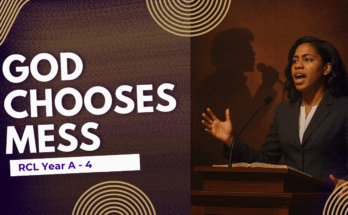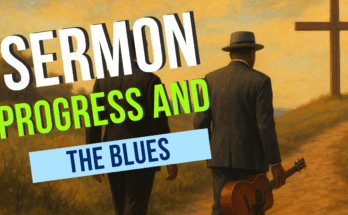As an Amazon Associate I earn from qualifying purchases.
The next pattern used for creation of sermons provided in Allen’s book Patterns of Preaching is the Thesis-Antithesis-Synthesis pattern.
This is the method used by the Black preachers Samuel Dewitt Proctor as well as James Harris. Many other preachers also use the method. In Harris’ appropriation of the pattern you have a thesis. The thesis is the Biblical idea or the ideal. The antithesis is the reality of our own present world. This is often a statement of why the thesis seems incorrect to us.
The synthesis is the sermon which demonstrates the truth of the thesis while answering the claims of the antithesis. Harris adds a relevant question. That is a succinct question that summarizes the tension between the antithesis and the thesis. Harris always derives the thesis and the antithesis from the text of scripture.
Harris’ position always emphasizes the text and thus can be used by those with a high view of scripture. The method makes explicit use of the African American preaching tradition in that the antithesis is taken from the world of the sermonic hearers. Cleophus LaRue’s concept of domains of experience can be helpful in the coming up of the relevant question and the antithesis. You can see my own treatment of LaRue’s concept at this link. The James Harris method can be seen in his book entitled Preaching Liberation.
Amazon and the Amazon logo are trademarks of Amazon.com, Inc, or its affiliates.






I think I am experiencing Dialect Preaching.
For example: The Preacher uses I Tim 1:15 when the Apostle Paul says in part: Jesus Christ came into the world to save sinners of whom I am chief (KJV) or in whom I am the worst (NIV).
The preacher is trying to convince the Congregation, that all Christians are presently sinners.
I say that of whom I am Chief means that Paul was saying that Paul is saying: Of whom I am before. Chief (4413) in the Greek means “BEFORE”.
In your opinion, do you think that this is a form of Dialectic preaching.
You have not given enough of the sermon to make that determination.